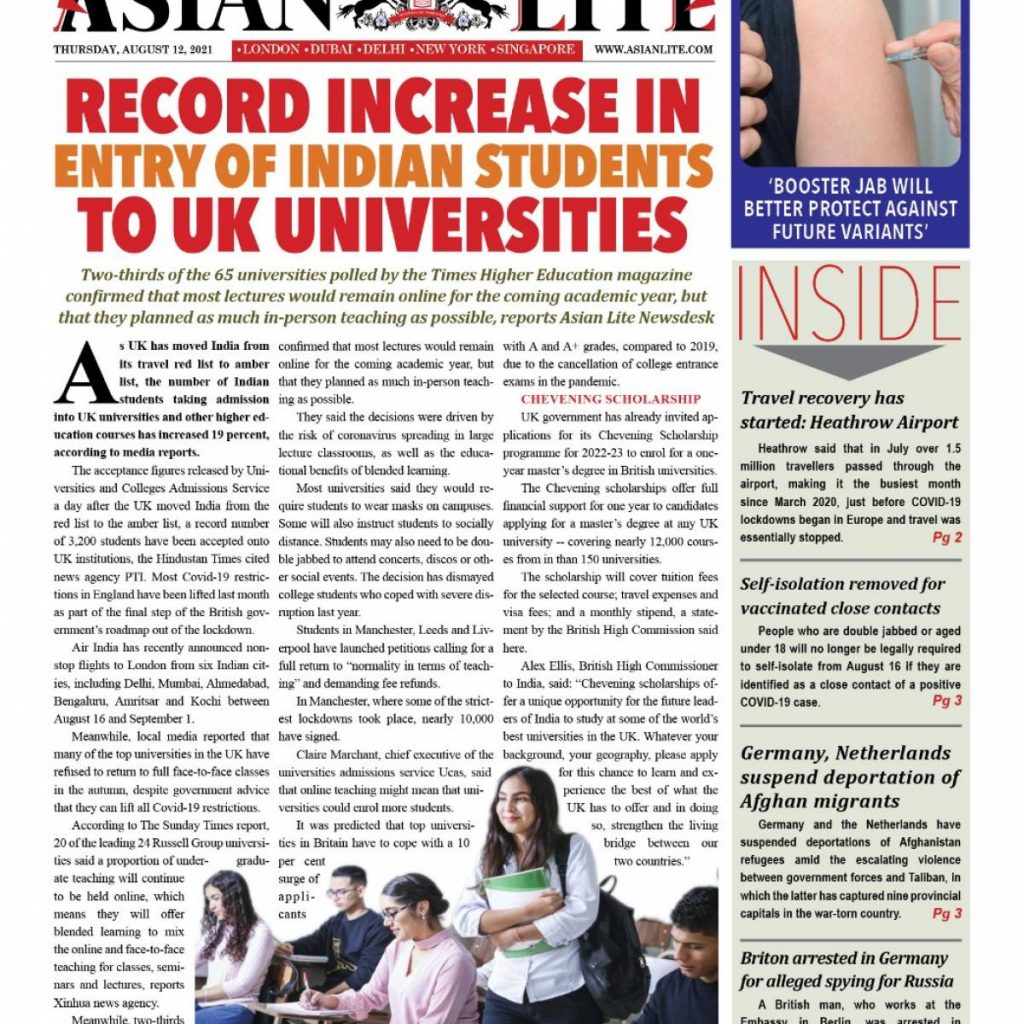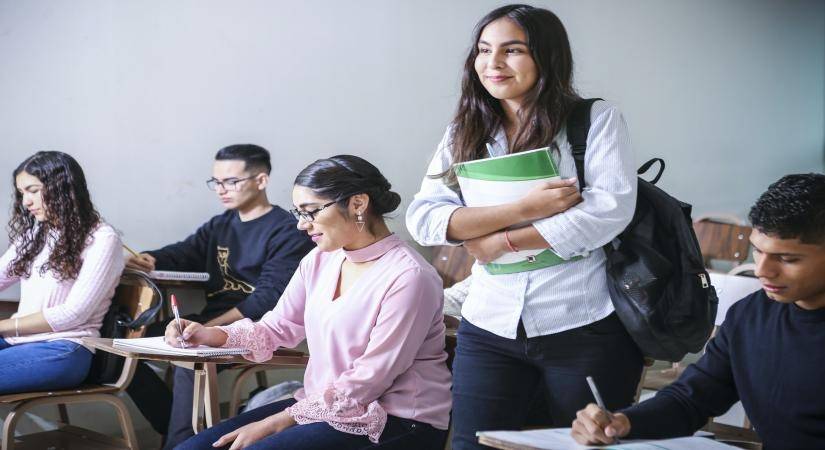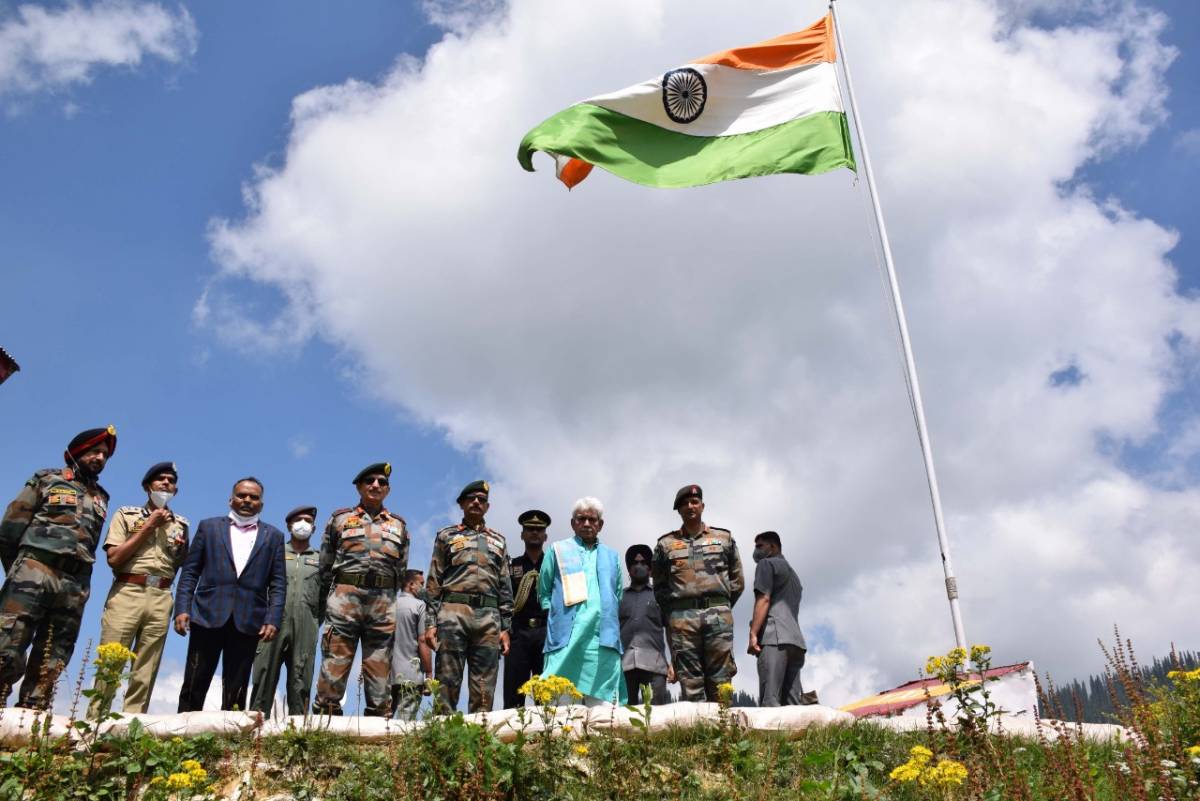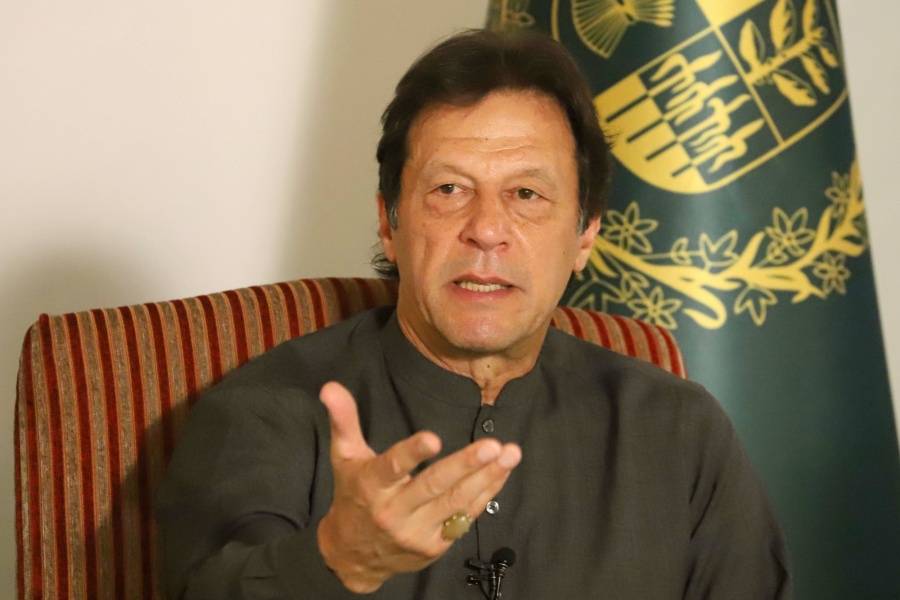Two-thirds of the 65 universities polled by the Times Higher Education magazine confirmed that most lectures would remain online for the coming academic year, but that they planned as much in-person teaching as possible, reports Asian Lite Newsdesk
As UK has moved India from its travel red list to amber list, the number of Indian students taking admission into UK universities and other higher education courses has increased 19 percent, according to media reports.
The acceptance figures released by Universities and Colleges Admissions Service a day after the UK moved India from the red list to the amber list, a record number of 3,200 students have been accepted onto UK institutions, the Hindustan Times cited news agency PTI.
Most Covid-19 restrictions in England have been lifted last month as part of the final step of the British government’s roadmap out of the lockdown.
Air India has recently announced non-stop flights to London from six Indian cities, including Delhi, Mumbai, Ahmedabad, Bengaluru, Amritsar and Kochi between August 16 and September 1.
Meanwhile, local media reported that many of the top universities in the UK have refused to return to full face-to-face classes in the autumn, despite government advice that they can lift all Covid-19 restrictions.
According to The Sunday Times report, 20 of the leading 24 Russell Group universities said a proportion of undergraduate teaching will continue to be held online, which means they will offer blended learning to mix the online and face-to-face teaching for classes, seminars and lectures, reports Xinhua news agency.
Meanwhile, two-thirds of the 65 universities polled by the Times Higher Education magazine confirmed that most lectures would remain online for the coming academic year, but that they planned as much in-person teaching as possible.
They said the decisions were driven by the risk of coronavirus spreading in large lecture classrooms, as well as the educational benefits of blended learning.
Most universities said they would require students to wear masks on campuses. Some will also instruct students to socially distance.
Students may also need to be double jabbed to attend concerts, discos or other social events. The decision has dismayed college students who coped with severe disruption last year.

Students in Manchester, Leeds and Liverpool have launched petitions calling for a full return to “normality in terms of teaching” and demanding fee refunds.
In Manchester, where some of the strictest lockdowns took place, nearly 10,000 have signed.
Claire Marchant, chief executive of the universities admissions service Ucas, said that online teaching might mean that universities could enrol more students.
It was predicted that top universities in Britain have to cope with a 10 per cent surge of applicants with A and A+ grades, compared to 2019, due to the cancellation of college entrance exams in the pandemic.
Chevening scholarship
UK government has already invited applications for its Chevening Scholarship programme for 2022-23 to enrol for a one-year master’s degree in British universities.
The Chevening scholarships offer full financial support for one year to candidates applying for a master’s degree at any UK university — covering nearly 12,000 courses from in than 150 universities.
The scholarship will cover tuition fees for the selected course; travel expenses and visa fees; and a monthly stipend, a statement by the British High Commission said here.
Alex Ellis, British High Commissioner to India, said: “Chevening scholarships offer a unique opportunity for the future leaders of India to study at some of the world’s best universities in the UK. Whatever your background, your geography, please apply for this chance to learn and experience the best of what the UK has to offer and in doing so, strengthen the living bridge between our two countries.”
India is home to the largest Chevening programme in the world. Chevening has been running the scholarship and fellowship programme in India since 1983. It has so far offered scholarships to more than 3,300 scholars and fellows from across India.
The applicants for Chevening scholarships must have a minimum work experience of two years and a strong academic background.
The deadline to apply is November 2.
There are four Chevening alumni present in Prime Minister Narendra Modi’s current council of ministers — Piyush Goyal, Gajendra Shekhawat, Anupriya Patel and Devusinh Chauhan.
ALSO READ-Malala portrays the ‘real’ refugee girls














